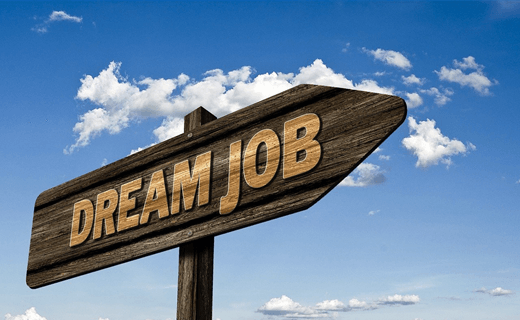|
I’ve been working in the “real-world” for over 15 years now. I remember the beginning at my first job out of college, thinking many things I hesitate to share. For example… “I’ll be going to work like this, every day, for the next 40 years?!”
For those of you starting your first job, here are a few things to think about:
5 Things I Wish I Knew When I First Started Working
• “It all pays the same!” I remember one of my first coworkers telling me this and I have repeated it to myself and others over the years. At times, you may need to handle tasks that you think are menial, useless or a waste of time. We all must contribute to keep an organization moving forward. Just do it, don’t complain, and move on.
• “That is not in my job description.” This statement will make any manager cringe. It is true that hiring managers should make the job duties and responsibilities clear during the hiring process. However, there is typically a statement in a job description that says “other duties as assigned.” Wish I would’ve thought of that when I’ve heard people say “that’s not my job.”
• It’s not all about you. We all want to be appreciated and lauded for our accomplishments. However, don’t make a scene. Forsake the limelight every now and then. Early in my career I became really irritated at a business meeting when someone else was given (and accepted) credit for an idea that was actually mine.
|
|
|
ADVICE FROM THE COMPANY:
Initially when I was looking for a career, I never thought of the agriculture industry as an option but now looking back I’ve never thought of leaving. For new graduates, I’d suggest taking time to find a company that aligns with your interests and values. It’s also important to look for a mentor or someone willing to coach and guide you through the initial challenges. As well, be open to lateral opportunities as they often lead to career advancement in the long term.
Mike Stewart – Viterra

Finding a job after college is more than just developing a resume and posting it. There are many new college graduates every May and December, so you must do a lot of leg work to get in front of the companies/organizations that you would want as an employer. It doesn’t matter as much about where you went to school, but as to how you managed your time while in school. For example, did you work while in school or participate in extracurricular activities?
Stephanie Watson – Syngenta

|
|
Was it really important? Absolutely not, but I selfishly wanted the credit. Before you act or react, consider, will this matter next year? Swallow your pride and let the light shine on others once in a while.
• There is always going to be something you don’t like. At one job, I loved my coworkers, but not the corporate politics. At another job, I enjoyed the work, but not the hours. You may complain all the time about your boss, but then move on to your next job and realize it wasn’t that bad. Remember it is all relative. Consider what is really most important to you since it is extremely rare to find a position that will perfectly meet all your criteria for the ideal job.
• Think on it overnight. You will often regret knee jerk reactions. Before you say something to a coworker that could be taken negatively, or complain to a supervisor, give it a little time. Unless it is absolutely urgent, wait a few hours or even overnight. After you’ve had time to cool down and think about the issue more, you can determine the best way to state your position. You may even decide it isn’t worth the hassle after you’ve had some time to think about it.
Want more advice from employees who have been there? Subscribe to our weekly e-newsletter or Career Cultivation blog.
|
